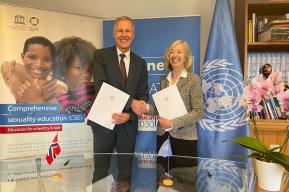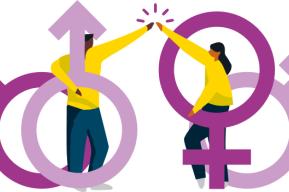
World AIDS Day
Every year on 1 December, UNESCO stands together with UNAIDS, co-sponsors and other partners for World AIDS Day.
While considerable progress has been made towards ending AIDS as a public health threat, the HIV epidemic is not over and young people remain disproportionately at risk. In 2022 alone, 480,000 young people aged 10 to 24 were infected with HIV, of whom 140,000 were adolescents between the ages of 10 and 19. Some 4,000 girls and young women became infected with HIV every week in 2022. Yet, in all but four countries with available data in sub-Saharan Africa – the region most affected by HIV – fewer than half of adolescents and young people have comprehensive knowledge of HIV.
Comprehensive sexuality education (CSE) is essential for young people to be able to protect themselves from HIV. It also helps young people avoid unintended pregnancy and other sexually transmitted infections, encourages them to seek out health-related information and services, promotes values of tolerance, mutual respect and non-violence in relationships, and supports a safe transition into adulthood.
Educational communities connect children, young people and their parents with teachers, educators, school staff and relevant health services – they are unique venues for building the trust needed to raise awareness on what is all too often a taboo subject. Moreover, education is a well-known protective factor against HIV: schools can teach the knowledge, values and skills needed to prevent infection and to care for those living with the virus.

What UNESCO does on HIV and AIDS









